Durga Puja, one of India's most significant and vibrant festivals, has always celebrated the divine feminine in all her glory. While the festival's roots lie in mythology, it has taken on a profound symbolic significance in recent years, reflecting the evolving roles of women in society and challenging long-held gender norms.
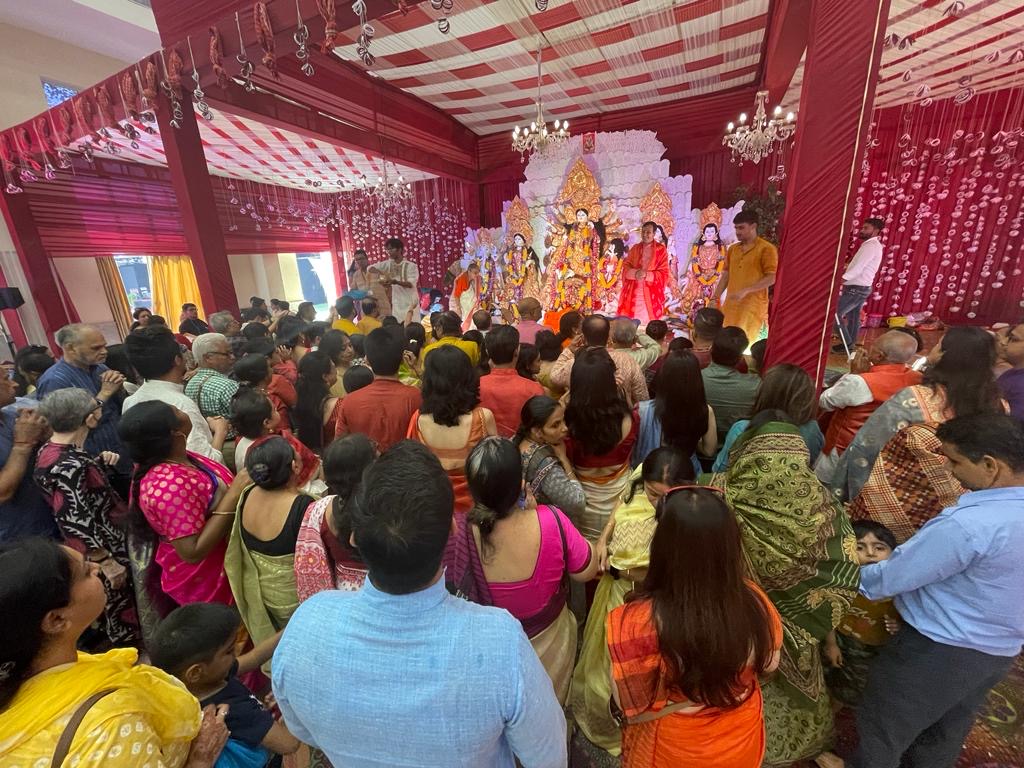
DLF City Durga Puja & Bengali Cultural Society in Gurgaon.
The festival, once a bastion of male dominance, now stands as a testament to women's changing roles and capabilities in the realm of culture. These women are not just rewriting the script; they are creating a new chapter in the ongoing saga of women's empowerment. As the beats of the dhaak resonate, they echo the resilience and determination of women who have chosen to lead from the front, challenging norms, and carving a path to equality and respect.
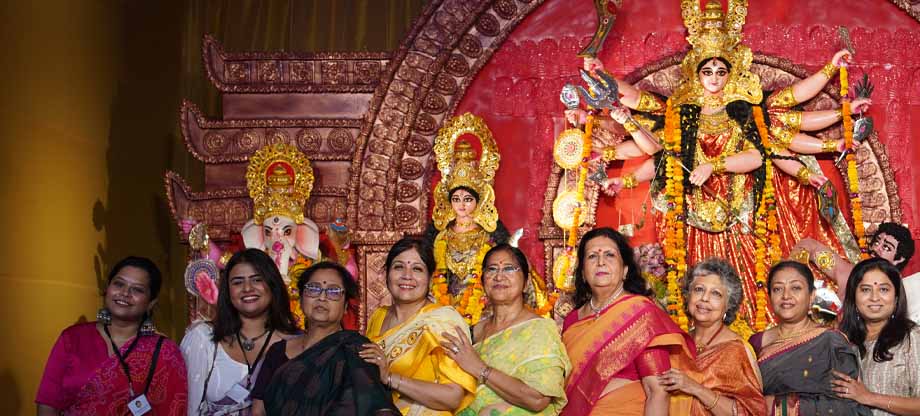
Notunpalli Sarbojonin Durgotsab Committee, Mumbai
Women As Priests: A Paradigm Shift
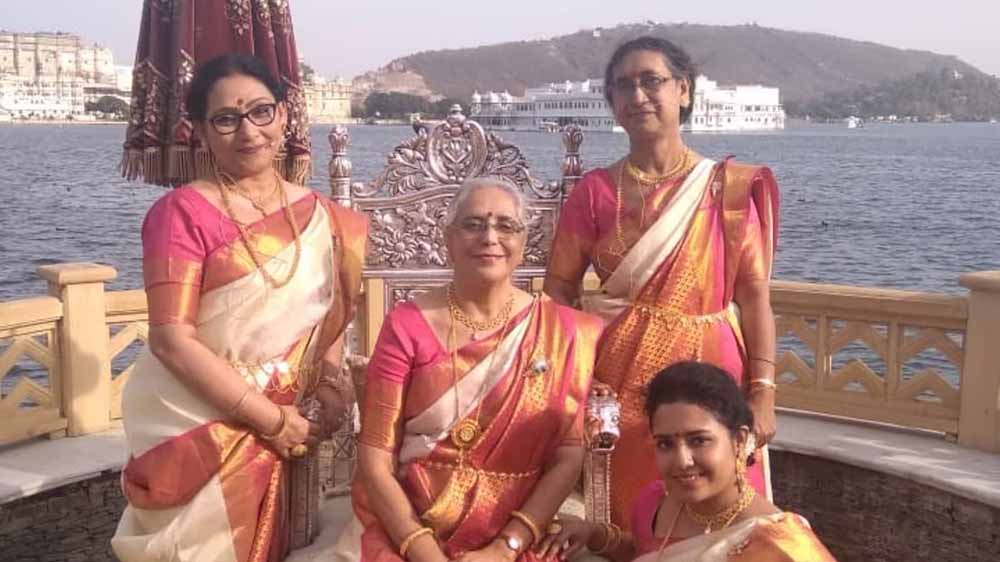
Women are rewriting history as they assume the role of priests, a position traditionally held by men. Nandini Bhowmik, alongside her colleagues Ruma Roy, Seymanti Banerjee, and Paulomi Chakraborty, has taken a pioneering lead in conducting the intricate rituals of Durga Puja. In a significant departure from tradition, they were among the first to break the mould and serve as priestesses at the 66 Palli puja pandal last year.
Their presence challenges deeply rooted gender biases dispels stereotypes, and serves as a testament to women's equal competence in performing religious duties. Notably, Durga Puja celebrations at New Town Sarbajanin Durga Puja, Madhuboni Chatterjee's Durga Puja, and Salt Lake AG Block's Durga Puja have embraced the concept of women priests, dismantling gender discrimination in this traditionally male-dominated realm. This shift highlights evolving paradigms and the increasing acceptance of women in roles that were once considered off-limits.
A Paradigm Of Empowerment
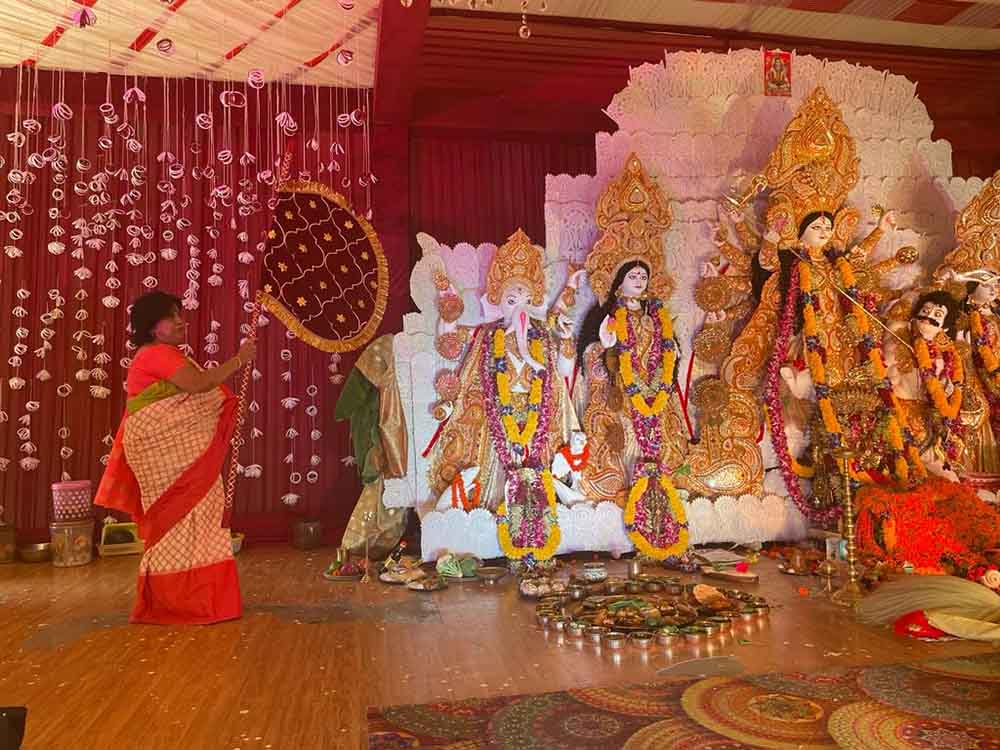
Mrs. Ruma Bose, Secretary of the DLF City Durga Puja & Bengali Cultural Society in Gurgaon.
Durga Puja is not just a religious festival; it's a celebration of women's empowerment. It pays tribute to Goddess Durga, the ultimate symbol of feminine strength, and, in doing so, it provides a platform for women to demonstrate their resilience, capabilities, and potential. “Balancing tradition and challenging age-old norms in Durga Puja celebrations has been a personal journey for me. Growing up within this tradition, I greatly respect our cultural heritage. However, my role within the organizing team of the DLF City Durga Puja and Bengali Cultural Society of Gurgaon has provided me with the opportunity to infuse fresh ideas into our celebrations, rendering them more inclusive and relevant. We've introduced modern elements like eco-friendly idols and initiated social awareness campaigns while preserving our core traditions. It's about respecting our roots while adapting to the evolving world,” stated Mrs. Ruma Bose, Secretary of the DLF City Durga Puja & Bengali Cultural Society in Gurgaon.
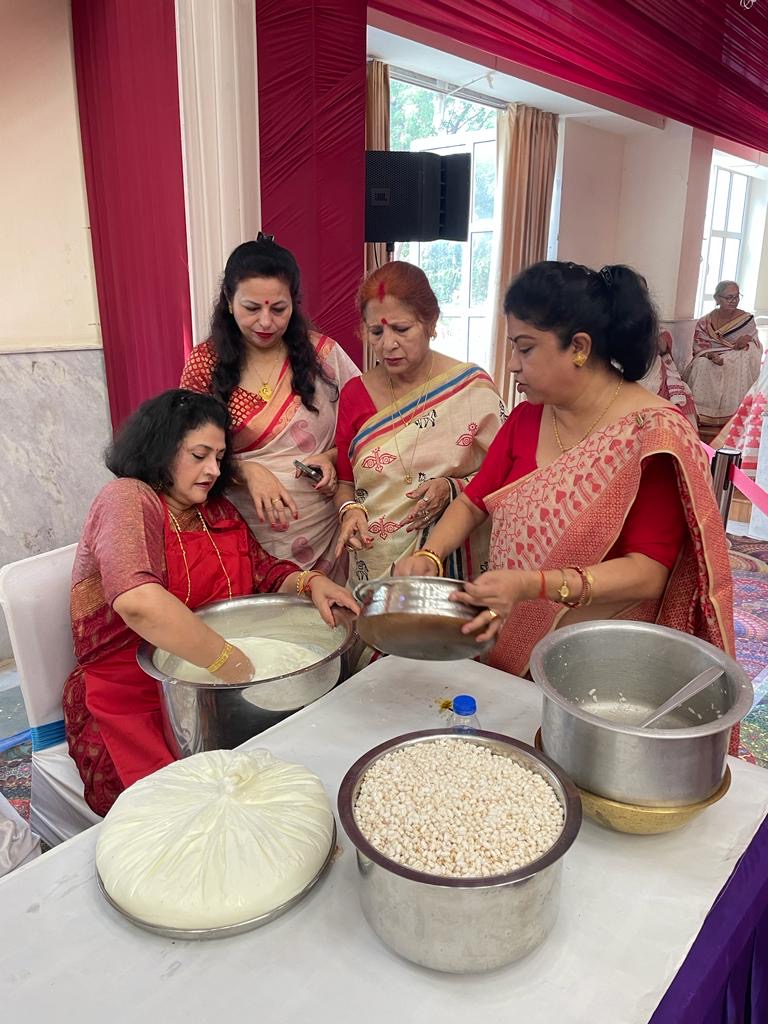
DLF City Durga Puja & Bengali Cultural Society in Gurgaon
“Durga Puja provides a unique platform to convey the strength and resilience of women. We employ our festivities to underscore the role of women not just during the festival but in everyday life. Whether it's being a core part of the organizing committee or managing decorations and cultural programs, we showcase the power and potential of women, inspiring our community to support gender equality. Our puja is a celebration of Goddess Durga, symbolizing female strength, and it serves as a reminder that women's resilience should be acknowledged and respected year-round,” she added.
Challenging Prejudice: Women In Religious Roles
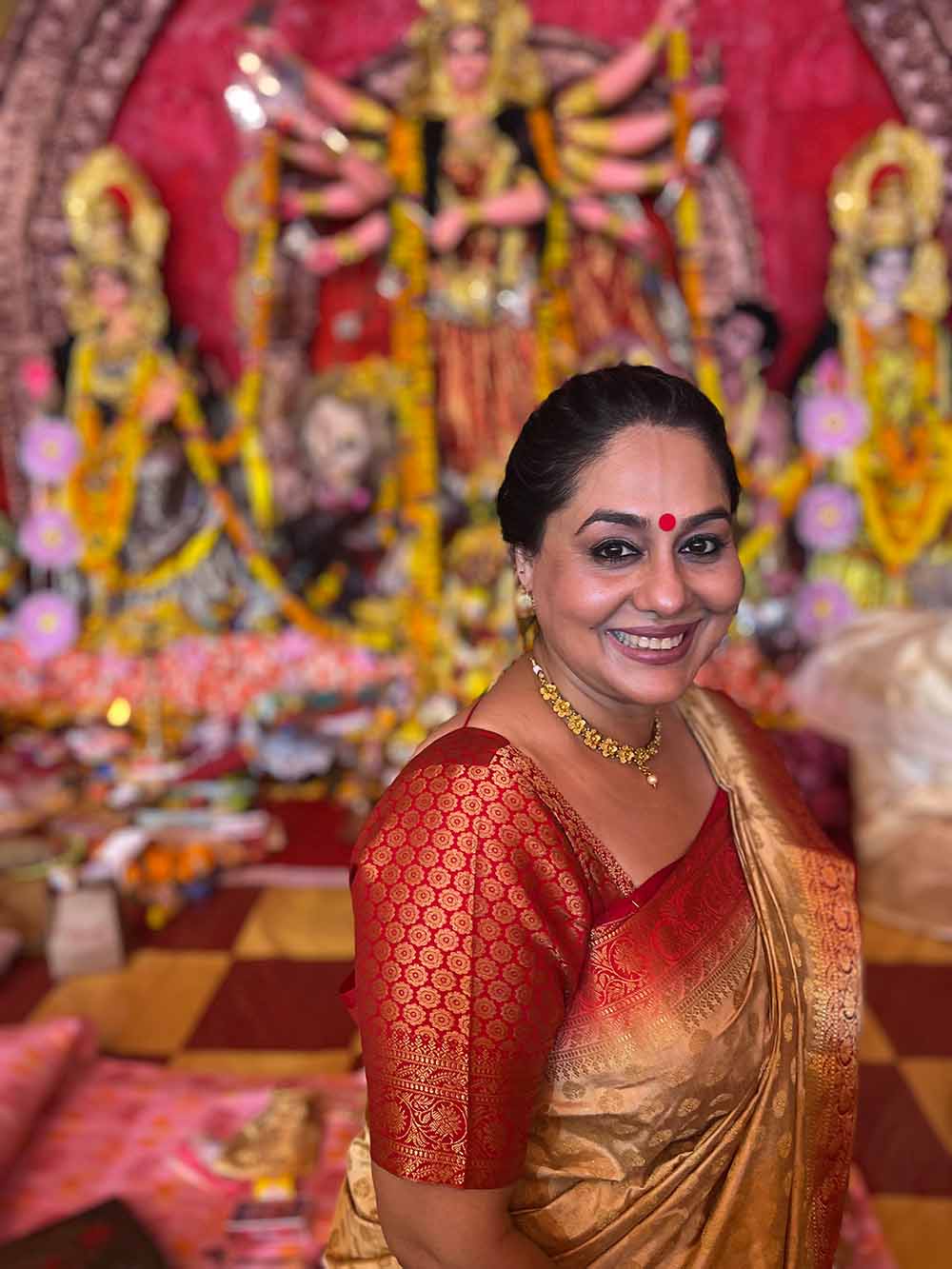
Arpita Modak, Convenor, Notunpalli Sarbojonin Durgotsab Committee, Mumbai.
The inclusion of women serves as an inspiration for society to reconsider its stance on gender equality and to recognise that women can play pivotal roles in religious and cultural traditions. “Durga Puja holds a unique sanctity and significance for us Bengalis, deeply ingrained with emotions. In the past, areas like cooking for Ma Durga, mandap decoration, and pandal setup were primarily male-dominated. Women played secure roles, handling tasks like cutting vegetables, sorting flowers, or rolling Chandan for puja. However, our journey has been transformative. Today, women not only actively participate in puja activities but have become integral members of the committee. They prepare the bhog for Ma Durga, are involved in the pujo rituals, pandal management and decoration and essentially run the show during these five days of our Puja. In a remarkable departure from tradition, women are even taking on the role of conducting pujas, a unique practice in our culture. While the term 'pujari' traditionally refers to a man, we are moving toward having priestesses conduct our Durga Puja ceremonies in the near future," shared Arpita Modak, Convenor, Notunpalli Sarbojonin Durgotsab Committee, Mumbai.
Breaking Barriers: Women As Dhaakis
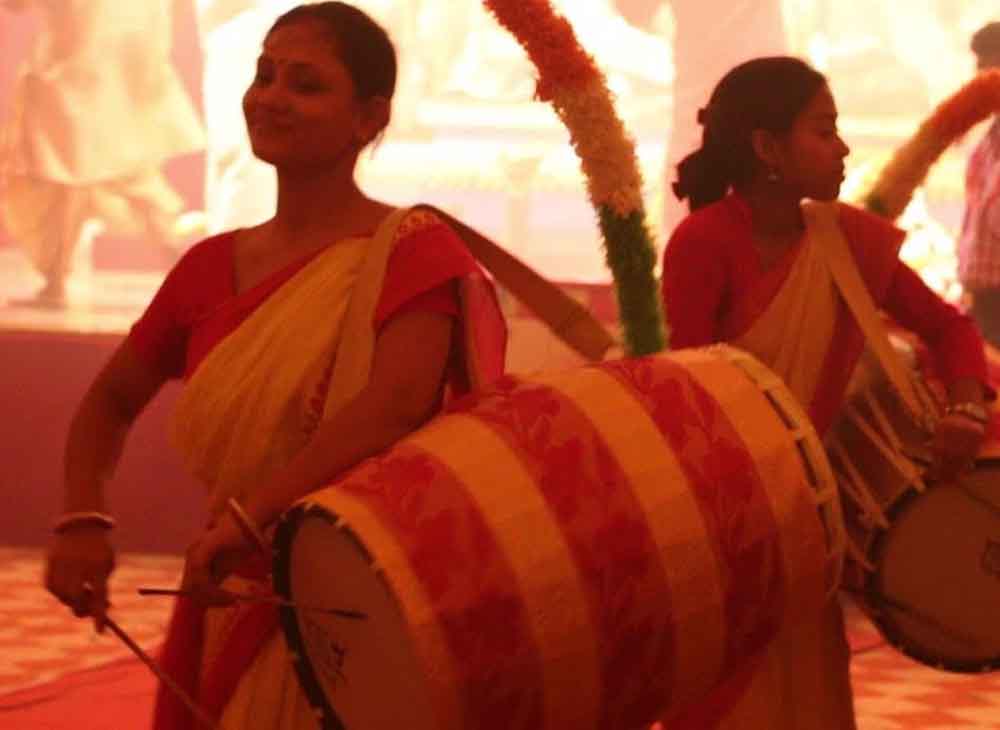
In a world traditionally reserved for male dhaakis, women like Rita Saha and Anjali Das are breaking barriers. These exceptional women have not only mastered the art of playing the dhaak, a barrel drum integral to Durga Puja, but they are also pioneering a new generation of female percussionists. Rita Saha, 35, showcases her expertise with grace and passion, emphasising that playing the dhaak is not just about music; it's about empowerment. The rhythm of their dhaaks symbolises the rising tempo of gender equality and progress in a society steeped in tradition.
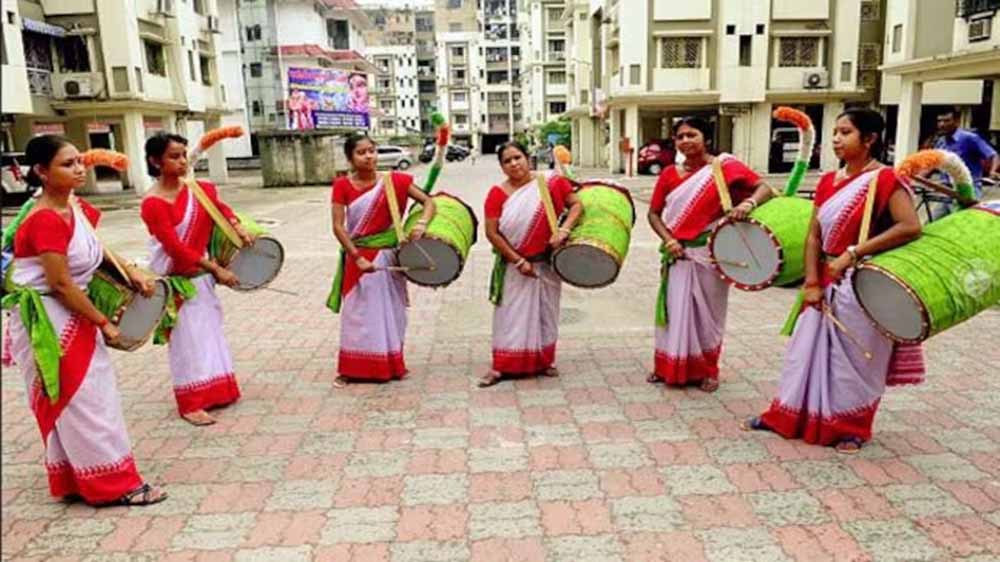
Anjali Das, at 38, highlights how her newfound profession has not only enhanced her family's income but has also granted her the opportunity to travel the world, showcasing her talent as a professional dhaaki. These women are not just drummers; they are ambassadors of a cultural revolution, demonstrating that gender should never be a barrier to pursuing one's passion.